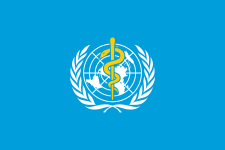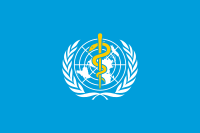بسم الله الرحمان الرحيم
وصفة الرشتة بالدجاج

المقادير: كمية من الرشتة حسب عدد أفراد الأسرة , لعلم الأخوات أن الرشتة الجزائرية تطبخ مثل الكسكسي و تسقى بالمرق ,ذكرت ذلك لتعرف كل أخت مقدار ما ستحضر من الرشتة
أنها مطبوخة و تنتظر المرق للتقديم و هاهي طريقة تحضيرها
المقادير :قطع دجاج حسب الأفراد 1 بصلة متوسطة , حبات جزر مقطع طوليا حوالي 5 سم, حبات لفت حسب الرغبة مقطع كذلك مثل الجزر, حبات قرعة مقطع بنفس الطريقة و كميتها تكون أكثر من الجزر و اللفت , حمص, توابل , ملح و زيت, القليل من عصير الليمون
التحضير : تذبل أطراف الدجاج في القليل من عصير الليمون و الملح و يترك 10 دقائق ثم تغسل جيدا و ذلك لإعطاء نكهة للدجاج و كذا لغسله, يوضع في طنجرة + بصل مقطع رقيق+ زيت+توابل و يوضع فوق النار حتى يذبل البصل مع التحريك يضاف عليه الماء , الحمص و الخضر المقطعة و يترك لينضج , يمكن إظافة الطماطم لتكون المرقة حمراء كما يمكن تركها بيضاء و هو الأصل .
توضع الرشتة المطبوخة في أطباق التقديم و تسقى بالمرق و أطراف الدجاج و ألف صحة. ![]()
شطيطحة بوزلوفوعصيدة المرمز

رأس خروف واربعة ارجل
رأس فلفل حار أو فلفل اخضر حار
ملعقتان كبيرتان من افلفل أحمر
ملعقتان كبيرتان زيت
كأس حمص منقوع
بقدونس
نصف لتر من مرق البوزلوف أي الماء الذي غلى فيه البوزلوف
لتر من الماء
كأس ونصف دشيشة المرمز او سميد الشعير الاخضر الخشن
ملح
كمون
كروية
كأس حمص منقوع
3ملاعق زيت
راس ثوم
شطيطحة البوزلوف
شوطي الرأس والرجلين ( حرقها بصورة خفيفة حتى يحترق الوبر كله دون ان تحترق البشرة فهذا يجعل الطعم مرا) ثم ضعيها في الماء البارد وادلكيها جيدا،إنتظري بضع دقائق ثم حكيها بسكين واغسيلها جيدا اقسمي الراس بالساطورإلى اربعة اطراف وانزعي المخ وضعيه جانبا وانزعي الغدد البيضاء موضع الرقبة والاذنين لا تتركي اثرا للوبر او التفحم
عصيدة المرمز ضعي في قدر ما تبقى من الماء الذي غلى فيه البوزلوف واضيفي إليه الزيت والحمص والثوم المهروس والملح والتوابل واضيفي إليه لترا من الماء وضعيه على النار وما إن يبدا الغليان ارمي المرمز وغطي القدر واتركيها على نار متوسطت حتى تشرب السائل كله تقريبا مع التحريك من وقت لآخر حتى لا تلصق في قاع القدر.










